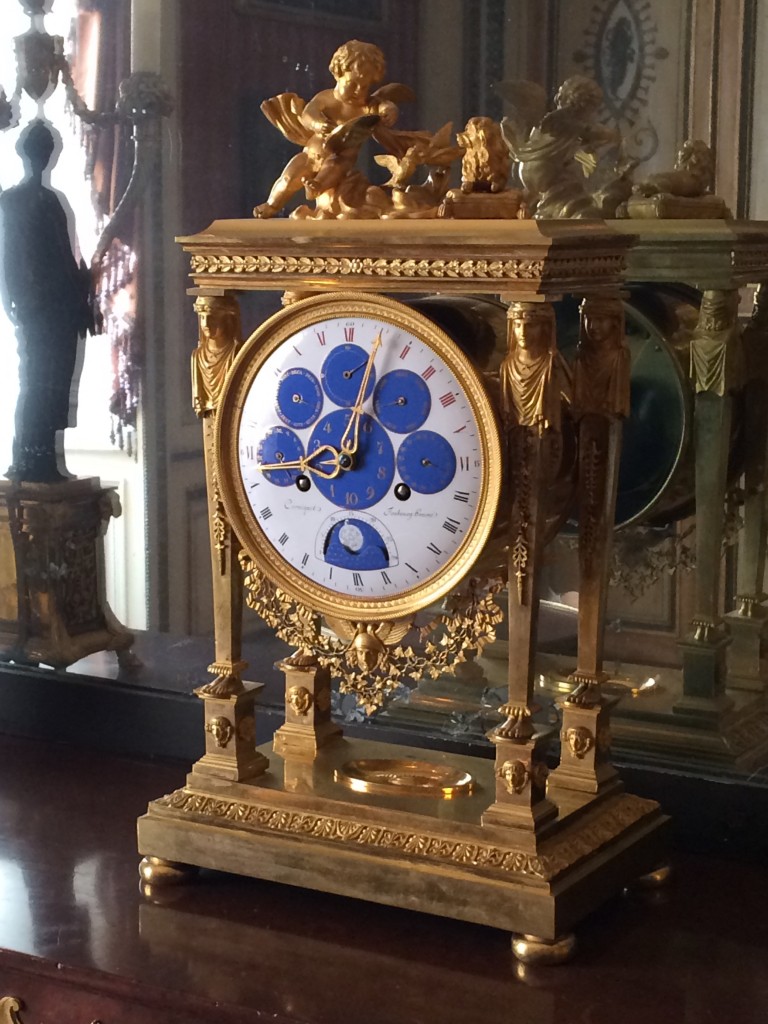All the Conservation students from West Dean are now in Paris for three days to view museums and sites. Officially we are here to learn about how our craft and how different museums and dealers approach conservation. Many conservators like to keep things pretty much as they are without doing much restoration or shining things up. Dealers in the other hand more often likely to make things shiny and replace missing parts etc. that is what they think is necessary to sell an antique.
What about you? Would you buy an antique clock because of its intrinsic historical value even if it didn’t work? Or do you value it because it is 200 or 300 years old and not want to damage that well aged surface and worn finish? Most clock owners want their clocks to work which typically means doing some restoration work on the clock–how much is too much?
This post is necessarily short and cryptic due to the fact that I have done it all on my iPhone on the bus as we are going into Paris for our second day.




Some portable clocks from the 17th century.
Cheers,

2 comments
Yes, thank you for sharing I am intruiged and so pleased for you to be having this wise adventure.
Author
I am enjoying my adventure indeed! Thanks for reading. It does take some time to write these but i am learning that writing makes you think harder about what it is you think and it is good practice to try to be concise and not just ramble.
All the best,